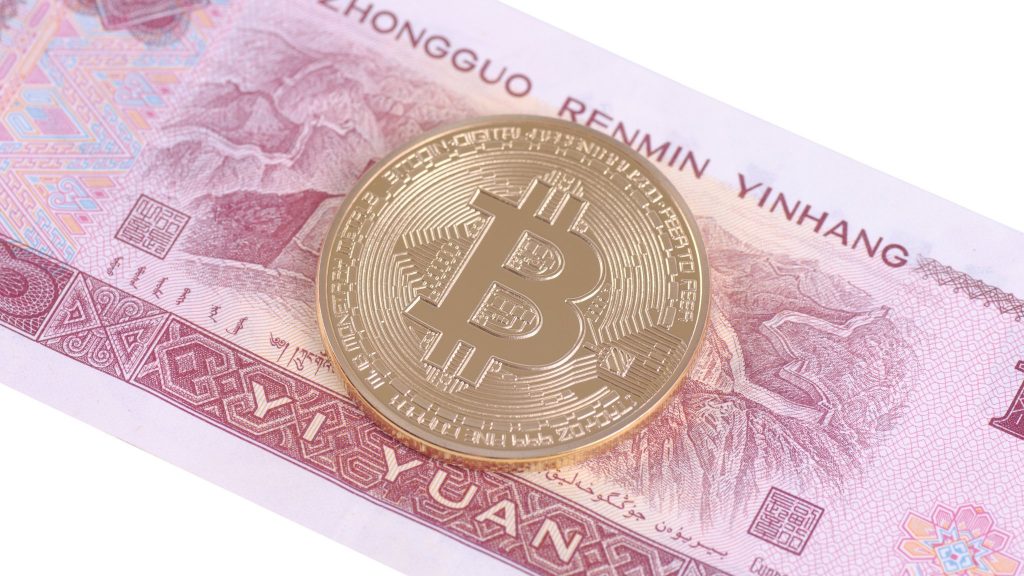China has once again declared that all crypto-related activities are illegal. The Chinese Central Bank also announced that any trading, order matching, token issuance, and derivatives on cryptocurrencies are illegal, including services offered by overseas entities made available within mainland China.
According to the People’s Bank of China (PBOC), the ban was necessary in order to ‘maintain national security and social stability.
The announcement, on Friday, caused the market value of the world’s cryptocurrencies to fall to about $1.8 trillion from $1.988 trillion. A 9% loss just three hours after China’s announcement, according to CoinMarketCap.
This is the third time this year that China is attempting to place restrictions on cryptocurrency.
In May, it warned buyers that they would have no protection from the government if the citizens continued to deal in crypto transactions. A month after, banks and payment platforms were ordered to stop processing crypto activities and also banned coin mining.
This is perhaps the most serious ban as it covers entirely all areas of crypto transactions without any grey areas or loopholes for the citizens to exploit. Perhaps, it is in a bid to make sure the focus is on the digital equivalent of the nation’s currency, yuan.
In response to this announcement, Huobi, an exchange platform stopped allowing new users to register with a mainland China phone number and in a statement said it would “gradually retire existing mainland China user accounts” by Dec. 31.
“Whilst this is not a surprise as China has ‘banned’ crypto many times in the past, this time there is no ambiguity, crypto transactions and crypto services of all kind are banned in China. No room for discussion. No grey areas.”
PricewaterhouseCoopers crypto leader, Henri Arslanian
China and cryptos have a painful history
Not only has the Chinese government seen cryptocurrencies as illegal, but it is also a drain on their energy owing to a large amount of mining that goes on and this is in conflict with their environmental goals. This sour relationship dates back for almost a decade.


Back in 2013, Chinese banks were banned from handling bitcoin transactions as it is not a legal tender, referring to it as a virtual good. The market reacted to this and the price of bitcoin dropped by more than 20% to below $1,000.
By 2017, the government investigated an alleged market manipulation and money laundering through bitcoin. It also banned initial coin offerings and crypto exchanges. But, citizens got around this using peer to peer trading. As a result, Bitcoin’s price fell by $200, from $4,584 shortly before the announcement to around $4,350 per coin.
In 2019, they considered banning crypto mining but no action was taken. This latest ban can be considered to be the most serious the government has been when it comes to cryptocurrencies.
The price of Bitcoin fell 3.6% to $42,200 from about $44,000 on the day of the announcement.
“The Chinese regulators have always been extreme in their views and these comments are not new. The interesting part is also why they continue making these statements. Its probably because they sense continued unabated activity in China and hence having to go on an overdrive.”
Vijay Ayyar, head of Asia Pacific with cryptocurrency exchange Luno in Singapore.
Nothing seems to change
Despite having imposed some form of a crypto ban in the past, bitcoin has continued to exist in China for one simple reason: people want it. For the same reason, Nigeria hasn’t been successful with its bitcoin ban either.


Nigeria is one of the leading countries in the world when it comes to transactions in crypto and other virtual tokens. A survey from Statista shows that Nigerians have about a 32% adoption rate.
Like its Chinese counterpart, the Nigerian government first advised banks not to deal in crypto-related activities before completely banning it. Generally, we are still coming to grasp the volatility of the cryptocurrency market.
However, like with previous times, we have seen the market bounce back from blows. Bitcoin for example is back up to $43,750 according to Coinbase.
Worldwide, governments are racing to keep up with developments in the $2 trillion cryptocurrency industry, which is fast-growing and has consistently disrupted traditional banking and finance.






